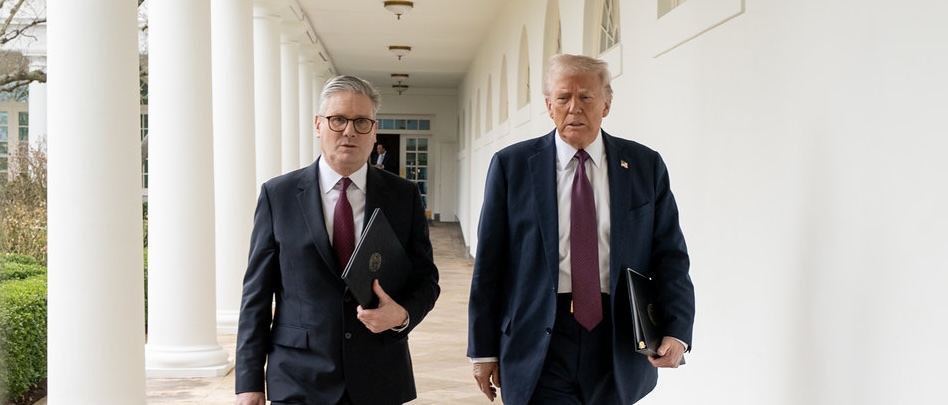Already a subscriber? Make sure to log into your account before viewing this content. You can access your account by hitting the “login” button on the top right corner. Still unable to see the content after signing in? Make sure your card on file is up-to-date.
The United States and United Kingdom have reached a tentative trade agreement aimed at easing recent tariff tensions, which have led to anger among some of the United States’ most prominent automakers.
Getting into it: At the core of the proposed US-UK trade deal is a rollback of tariffs imposed earlier this year by President Trump. The US plans to cut tariffs on British car imports from 25% to 10%, though only for the first 100,000 vehicles shipped each year. Shipments that exceed the 100,000-vehicle cap will be hit with the original 25% duty. Notably, this quota matches the number of UK vehicles exported to the US last year.

The US has also agreed to reintroduce a quota-based exemption on UK steel and aluminum, replacing the blanket 25% tariffs that were reinstated earlier this year. Instead of unrestricted access, the UK will now face a volume cap similar to pre-2025 arrangements, allowing a specified amount of metal imports tariff-free. On the agricultural front, both countries have agreed to import up to 13,000 metric tonnes of beef from each other annually—a significant increase from previous levels—while the UK has also committed to lowering trade barriers for US ethanol and various machinery products.
Despite these concessions, most other British goods will continue to face the global 10% import duty recently implemented by the US, and many of the agreement’s broader terms remain unclear.
Automakers are pissed: Despite President Trump saying this was a good deal for all US industries, major automakers have come out against the tentative trade agreement, voicing strong opposition to the terms they claim favor British competitors at the expense of American manufacturers. The American Automotive Policy Council—which represents Ford, General Motors, and Stellantis—criticized the deal for allowing up to 100,000 UK-made vehicles into the US at a reduced 10% tariff rate, while US automakers continue to face significant barriers in both transatlantic and North American trade.
Automakers argue this gives British imports a price advantage, even though they contribute far less to the US economy or job market. Matt Blunt, president of the council, said, “Under this deal, it will now be cheaper to import a U.K. vehicle with very little U.S. content than a USMCA-compliant vehicle from Mexico or Canada that is half American parts. This hurts American automakers, suppliers, and auto workers.”







